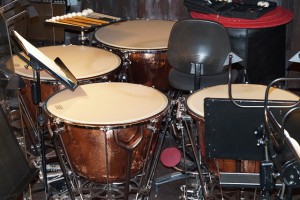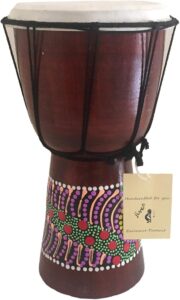How Music Therapy Benefits Mental Health – Try It!
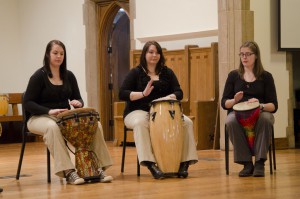
Music Therapy Benefits Mental Health
Have you considered the possibilities of how music therapy benefits mental health? Caregivers need all the help they can get by being given ideas and resources to help combat the levels of stress faced on a daily basis.
Will You Give It A Go?
Perhaps music may become one of your own chosen methods, as a carer or a person being cared for, to find some peace from. I’m sure you will agree, any help is worth trying at least once to see how it goes. While this article discusses the benefits of music therapy to mental health for carers specifically, this does not exclude anyone who needs therapeutic options, including those being cared for.
Why Would A Caregiver Need Music Therapy?
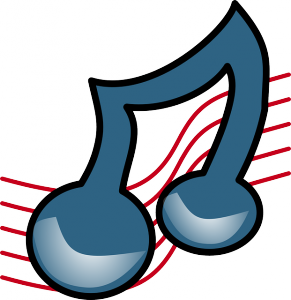
Music Therapy has a place in self care
Every day we are exposed to stressful situations, often many times a day. On occasion, it can be an ongoing event that encompasses a period of time, making it even more difficult to wind down from during the day or at least at night before going to bed.
What Do You Do For Your Own Self Care?
This is one of the primary contributors to long term stress which effect carers depending on individual circumstances. What works for some, or impacts others, may not be the same each time. Things change daily in the life of a caregiver, therefore it is important that we look after ourselves and instigate some self care routines.
Here’s An Idea For Stress! ‘Beat’ The C**p Out Of It!
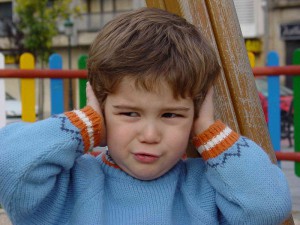
Noisy Neighbours
I am suggesting that you look into using music as a therapy option. I am not directing you to go bang on some drums just as you are about to go to bed. I don’t think that will serve to settle you down for a good night sleep and I don’t think the neighbours will be thanking you either.
Get Rid Of It!
However if we can release some of that pent up stress energy prior to when we are attempting to relax, we may find it much easier to find the calm we are searching for, or to drift off to sleep more easily.
Drum It In!
Earlier this year I attended a carer support group, my first one ever! Up until now, I have had very little support and didn’t even know that these groups existed. If you haven’t already, I strongly suggest you look one up in your community. The topic being presented this day was ‘Drum Therapy‘.
1. The Therapist Set It Up
I arrived to find a therapist setting up an assortment of all kinds of percussion instruments. He had big drum sets, complete with drum sticks (I’m sure there is a proper name for them), tambourines, cymbals, triangles, castanets, African drums, and a few other items that I can’t quite remember.
2. We Created Such A Ruckus
We were able to try our hand at many of them. We took it in turns where someone created a rhythm and the rest of the group followed along. I actually felt quite sorry for anyone who happened to be in ear shot. It was loud, often out of sync and all over the place. So many group members claimed to be uncoordinated in terms of rhythm, and to be honest, some of them were right! Oftentimes there was a terrible ear battering going on in that room, but when we got it right, it was a wonderful expression of emotions arising from deep within our souls.
3. We Expressed Ourselves Like Never Before
I found myself grinning from ear to ear and looking around. I could see the expressions on people’s faces, there were some angry, hurt or sad feelings coming out with their drumming. But what a great time we had doing it. It was amazing how freeing the effort of drumming to a beat was for everyone. Drums have an interesting sound and produce a resonation within your bodies that often matches other frequencies that are harmonious to humans. I talked about frequencies in another article. As a result, we are uplifted by it. I tried a few different drum styles, but I found a favourite for the session.
4. I Picked My Favourite
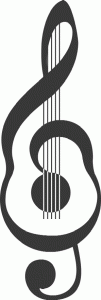
Music Therapy – Take Note
I really loved the African Drum. You could get your whole body behind creating the beat. The normal drums with the drum sticks, were good for a more easier sound generation, but had less body movement behind the actions. The African drums took a bit of getting used to, but for me produced a more therapeutic benefit. Hands were used to beat the drums, making the whole upper body work to put energy into gaining enough force to get any decent percussion sound.
5. Wow, What A Release Of Pent Up Emotions and Endorphins!
What we found was a huge release of pent up energy. Drumming helped release endorphins similarly to going for a run. For me, my whole upper body resonated with the experience through giving it everything I had, putting my energy focus into that single act of beating a drum. It was exhilarating. Endorphins help to increase our ‘happy’ hormones in our brains and I personally had a sensation of joyfulness that lasted the drive all the way home and into the afternoon.
6. What Was The Result In Terms Of Benefits To Carers?
I give drumming a big thumbs up as a therapeutic tool and have a smile on my face just remembering the whole encounter with this previously unknown element, which means there is a long term potential to produce some enhanced cheerfulness from a mere memory.
This 2 Year Old’s Got Rhythm!
This little 2 year old sums up nicely how it felt to be playing these drums. He puts his whole body into it, feeling the rhythm, smiling, just perfect.
What Does Music Therapy Involve?
When I speak of music therapy, I am talking about creating your own version of it. Find what works for you. You could look into paid therapy sessions that incorporate music therapy, however we are not always able to arrange a regular appointment time on a regular basis depending on the demands of our caring roles. Don’t let that get in the way of using it as a therapy. Having experienced first hand the effect on mental health that I received from one session of music therapy, I can attest to the ways in which I felt it helped me. So you can do it anywhere, anytime, buy a drum and just bang on it. I’m sure over time you will learn rhythm anyway.
So Many Styles To Choose From And Try!
There are many instruments and techniques to ponder from drums, guitar, piano, triangle, meditation audios or relaxation sounds, saxophone, harmonica, whistling, singing, flute, playing in a band, or simply doing lessons to learn one of these. I have expressed before that I use subliminal audios to relax but also use it to gain focus, such as when I’m writing. I have a big play list of various forms of music that I listen to over a long period of time whenever I can as another form of music therapy.
A Wide Range Of Options To Choose From
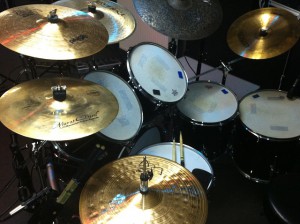
Percussion Drums and Cymbals
How music therapy benefits mental health can range from something as simple as merely listening to music, learning to play an instrument, singing to your favourite tunes, or to something more complex and thought provoking such as making your own music.
While there are many different types of ways to incorporate music therapy into your life, today I specifically wanted to shine a light on drum therapy.
If This Sounds Appealing To You – Go Buy A Drum!
What aspect of music therapy you would like to embrace? At least give it a trial. I personally have chosen the African drum. It was the one that I gained the most benefit from in terms of the energy expelled using it, the endorphins it produced, and also the potential form of exercise as a great side effect. So how will you decide if music therapy will work for you if you don’t at least try it?
I sincerely hope that you have enjoyed reading this post and next time you feel stressed, use music as your therapy. Please leave me a comment on which instrument or form of music you have chosen and how it’s working for you. I would dearly love to hear from you and I’m sure others would too.
Until Next Time
Warm Wishes
Ange
‹ Smile! It Will Change Your Mood Whole Tones Healing Music: Michael Tyrrell – Carers Finding It Useful. ›
